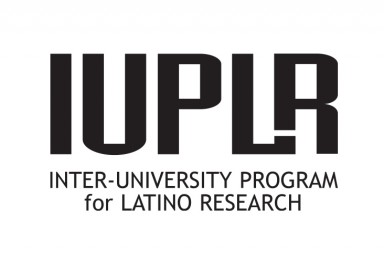UIC new home for national Latino research consortium
 A national consortium of 25 university-based Latino research centers will make its new headquarters at the University of Illinois at Chicago.
A national consortium of 25 university-based Latino research centers will make its new headquarters at the University of Illinois at Chicago.
The Inter-University Program for Latino Research, previously based at the University of Notre Dame for 14 years, aims to promote policy-focused research and advance the Latino intellectual presence in the U.S.
Founded in 1983, the group supports research and programs that foster greater understanding of U.S. Latinos in politics, economics, culture, art, history and immigration.
Maria de los Angeles Torres, professor of Latin American and Latino studies, will serve as the group’s new executive director.
“The Inter-University Program for Latino Research serves an important role as the U.S. Latino population grows and national issues relevant to Latinos and all citizens are deliberated by public officials,” said Torres, a scholar of Latino politics in the U.S., immigration and citizenship in America, and U.S.-Cuba relations.
At UIC, Torres said, “the association will build on its core mission to develop an expanding base of leading Latino scholars and foster policy-relevant, Latino-focused research.”
To support faculty and students in higher education, the consortium has collaborated with the Smithsonian Institution to host conferences, train graduate students in museum studies, and offer a policy and leadership training program for undergraduates.
The group also maintains an office location at the University of California’s Washington Center in Washington, D.C., to bolster the associated research centers’ national and international outreach.
The member institutions, which include centers at the Smithsonian, University of California-Los Angeles, University of Texas at Austin, City University of New York’s Hunter College, and Florida International University, give the consortium a regional grounding as well as a national perspective, Torres said.
“The selection of UIC and Chicago as the program’s headquarters through 2018 underscores the growing Latino presence in the Midwest,” she said. “The university’s location, diversity, strong pool of scholars, and dedication to public engagement make it an ideal institutional fit as the consortium’s new home.”
To mark the occasion, UIC will present “Immigration and the Border Politics and Policy in the New Latino Century,” a Sept. 26 panel discussion from 3 – 5 p.m. at the UIC Latino Cultural Center, 803 S. Morgan St., Lecture Center B2.
The event, which is based on the same-titled book presenting research from the group’s Siglo XXI conference, will feature consortium-affiliated scholars discussing the impact that Latino studies has had on understanding transnationalism.
To learn more about the Inter-University Program for Latino Research, visit http://iuplr.uic.edu.
UIC ranks among the nation’s leading research universities and is Chicago’s largest university with 27,500 students, 12,000 faculty and staff, 15 colleges and the state’s major public medical center. A hallmark of the campus is the Great Cities Commitment, through which UIC faculty, students and staff engage with community, corporate, foundation and government partners to improve the quality of life in metropolitan areas around the world.
